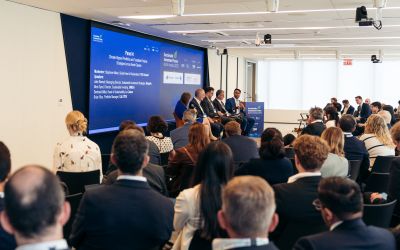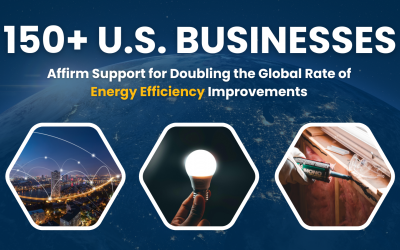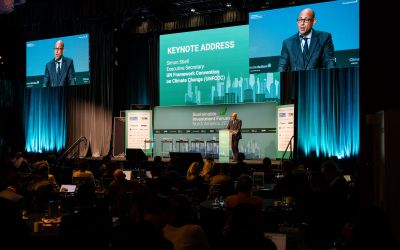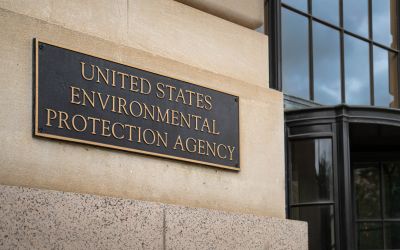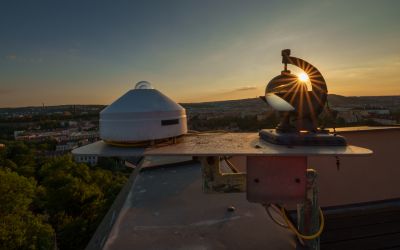Interview with David McLagan - Ecoffee Cup Founder & CEO
Climate Action spoke with David McLagan, Founder and CEO of Ecoffee Cup: a brand of reusable takeaway coffee cup made with naturally organic, biodegradable bamboo fibre and non-GMO corn starch.

Climate Action spoke with David McLagan, Founder and CEO of Ecoffee Cup: a brand of reusable takeaway coffee cup made with naturally organic, biodegradable bamboo fibre and non-GMO corn starch.
Firstly, could you explain who Ecoffee Cup are and what you aim to do?
We started Ecoffee Cup in 2014. It is a brand of reusable takeaway coffee cup made with naturally organic, biodegradable bamboo fibre and non-GMO corn starch. It feels a bit like thick cardboard, but is dishwasher safe and can be reused over and over. Available in three sizes and over 50 designs, the central objective of the brand is to offer a stylish, yet highly practical alternative to single-use takeaway cups – and help facilitate a change in consumer behaviour in this area. Whilst there are other reusables on the market, we found they were either made entirely from plastic, or somewhat ungainly, heavy ceramic. Our central premise is that if you have a product that you love, you will use it again and again – and this, in turn, will begin to help make a dent in the ever-growing mountain of single-use cups that end up as landfill.
What were your motivations behind developing an alternative to paper cups?
Statistics can be boring, but when we started investigating the volumes of single-use packaging that get used on a daily basis, frankly we were appalled. Single-use so-called “paper” coffee cups were of particular interest. Despite what most people believe, these are not recyclable due to their high plastic content, so 99% end up as landfill. Global estimates suggest over 100 billion annually; some suggest more like half-a-trillion. And it certainly isn’t just the coffee chains that are at fault. Workplaces, conferences, vending machines and commercial catering have all played their part in swelling these volumes. And when put in context, we believe these numbers bring into focus the severe misappropriation of resources in the single-use economy.
We also believe that if we can get people to cut their usage of single-use coffee cups by as little as a quarter, we can start to make an impact on this vast pool of waste. In the words of the American philosopher, William James: “Act as if what you do makes a difference. It does”
The other main motivator behind Ecoffee Cup was the fact that people hate being preached to. If we are to change behaviour we have to ensure we do it from a position of discussion, not punishment. We firmly believe that if you give people a product that fits their lifestyle and they love to use, then the environmental benefits will filter through by themselves. Get too preachy and people turn-off to your message.
Ecoffee Cup uses bamboo fibre in its products. What are the benefits of this?
Bamboo is a grass species that can grow up to a metre a week. When harvested, it re-shoots from its extensive root system and does not require replanting. Farmed bamboo stabilises soil with its roots, preventing erosion, and is particularly effective in repatriating distressed or marginal farming land. Bamboo is also naturally organic and requires no fertilisers or chemicals in its propagation, allowing for bio-diverse ecosystems to flourish alongside it.
Unlike hardwood trees, which once felled are gone forever, bamboo renews itself rapidly, providing a near-inexhaustable resource.
Bamboo also contains a naturally anti-bacterial, anti-fungal bacteriostatis agent called “bamboo kunh” which helps prevents odour-producing bacteria from growing and spreading. This makes it an ideal material for products such as ours as they do not flavour taint with reuse like some plastics.
Bamboo absorbs greenhouse gases and produces 35% more oxygen than equivalent trees. One hectare of bamboo can store up to 250 tons of carbon (Qi, 2009). Based on World Bank data on CO2 (2013) emissions, this translates to the volume of carbon produced by 140 people in China (50 people in USA).
Our bamboo is sourced from Anji County in the northwestern Zhejiang province of China. It is a region very much focused on sustainable environmental practices and since 2003 has been making significant progress in this area. Bamboo harvesting sustains 10,000 farming families in one of China's poorest regions. This is not bamboo replacing other native forest, this is their native forest: people have been commercially harvesting bamboo in this region for almost 900 years. We very much see it as an example of how far manufacturing in China has progressed in the last decade.
As well as Ecoffee Cup, you also have a kids range called BimBamBoo. Can you tell us more?
BimBamBoo is a range of kids products also made from plant-based materials. Our dining sets are designed to offer an alternative to the ubiquitous plastic or 100% melamine kids dining products and have been created with a similar ethos to Ecoffee Cup. As bamboo fibre is a naturally sterile material, it provides a great eating surface for kids. The range will be expanded in 2017 to address consumer waste issues, as well as reduce the amount of plastic that is currently used in kids’ food storage and dining products.
You recently set up the #stopthe100billion campaign on social media. Can you explain what this means?
Awareness is the key! Unfortunately most people still believe single-use coffee cups to be recyclable, so aren’t aware that there is actually a problem. Initially #stopthe100billion was just a simple way to get this message across – helping raise awareness through social media of the number of single-use cups going to landfill. However, the campaign has now developed into a programme– run in conjunction with cafes and local government – to encourage cup reuse by offering discounts for doing so.
What are Ecoffee Cup aspirations for the future?
Within two decades single-use plastic products have come to dominate our daily lives; it is very difficult to avoid them. When plastic is such a cost-effective option for big manufacturers, we believe we have at least a decades work to make an impact on this tide of single-use. It is a big mountain to climb!
However, beyond Ecoffee Cup and central to our business plan, is the continued research, development and creation of products that can help people lessen the environmental impact of their daily life. This means a combination of reusable products – as well as range of single-use rapidly degradable plant-based alternatives that can eventually replace plastic.
In addition to the constant evolution of Ecoffee Cup itself, we have a number of other products in the pipeline designed to address this ever-growing battle with single-use plastics.

